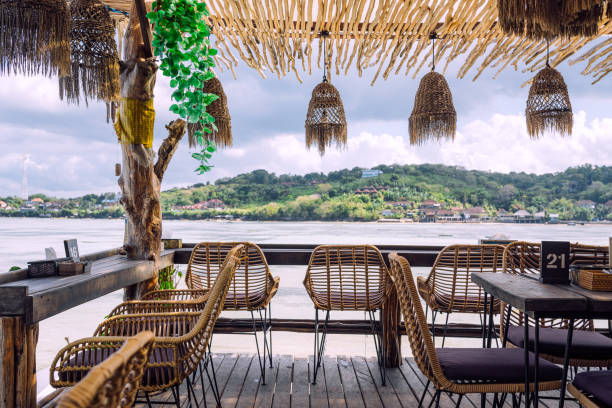How to Start a Restaurant in Indonesia: A Comprehensive Legal Guide



Indonesia is a thriving market for the food and beverage industry, attracting entrepreneurs looking to establish successful restaurant businesses. With a booming tourism sector and a growing middle class, the country presents excellent opportunities for both local and foreign investors. However, setting up a restaurant in Indonesia requires a thorough understanding of legal requirements, permits, and business regulations.
Understanding Business Structures for Restaurants
Before opening a restaurant in Indonesia, selecting the appropriate business structure is essential. The most common options include:
1. PT (Perseroan Terbatas) – Local Company
A PT is a limited liability company owned by Indonesian nationals. This structure provides the flexibility to operate various types of businesses, including restaurants. If you are a foreign investor, you must partner with a local citizen to establish a PT company.
2. PT PMA (Foreign-Owned Company)
Foreign investors looking to open a restaurant in Indonesia can establish a PT PMA, which allows them to legally operate a business with foreign ownership. However, PT PMAs are subject to specific investment requirements, including a minimum capital investment.
3. Nominee Arrangements (Risky Option)
Some foreigners attempt to register a business under an Indonesian nominee’s name. This approach carries significant legal risks and is not recommended due to potential disputes and ownership issues.
Legal Permits and Licenses Required
Operating a restaurant in Indonesia requires obtaining the necessary permits and licenses. The key requirements include:
1. Business License (NIB – Nomor Induk Berusaha)
This is the primary business identification number required for all registered businesses in Indonesia. It is obtained through the Online Single Submission (OSS) system.
2. Commercial License
A commercial license is needed for businesses involved in trading activities, including restaurants. It must be acquired before launching operations.
3. Food and Beverage Service License (TDUP – Tanda Daftar Usaha Pariwisata)
For restaurants serving food and beverages, a TDUP is mandatory. It is issued by the regional government and must be renewed periodically.
4. Hygiene and Sanitation Permit
This certification ensures that the restaurant complies with local hygiene and food safety standards. Authorities conduct inspections before issuing this permit.
5. Building Permit (PBG – Persetujuan Bangunan Gedung)
If the restaurant involves new construction or major renovations, securing a building permit is necessary to ensure compliance with zoning regulations.
6. Environmental Permit (UKL-UPL or AMDAL)
Restaurants generating waste or operating in sensitive areas may require environmental permits to comply with sustainability regulations.
7. Alcohol Beverage License (SIUP MB – Surat Izin Usaha Perdagangan Minuman Beralkohol)
If serving alcoholic beverages, the restaurant must obtain an alcohol license, which is subject to strict government regulations.
8. Tax Registration (NPWP)
Every business in Indonesia must register for a tax identification number and comply with local tax regulations.
Location and Zoning Regulations
Choosing the right location is crucial for the success of a restaurant. However, zoning laws in Indonesia regulate where food and beverage establishments can operate. Key considerations include:
Commercial vs. Residential Zones: Certain areas are designated for commercial activities, while others are restricted to residential use.
Tourism Zones: Some regions have specific permits for businesses catering to tourists.
Mall and Shopping Centers: Restaurants in malls may require additional agreements and approvals from the property management.
Employment and Labor Laws
Hiring staff for a restaurant involves complying with Indonesian labor laws. Employers must adhere to regulations regarding:
Employment Contracts: Employees must be provided with legal contracts outlining salaries, benefits, and working conditions.
Minimum Wage Requirements: Indonesia enforces region-specific minimum wage policies.
Work Permits for Foreign Staff (IMTA & KITAS): If hiring foreign employees, proper work permits and stay visas must be obtained.
Health and Insurance Benefits: Businesses must enroll employees in the national social security system (BPJS Kesehatan & BPJS Ketenagakerjaan).
Taxation for Restaurants
Understanding tax obligations is essential for operating a restaurant in Indonesia. Key taxes include:
Value-Added Tax (VAT): Restaurants generating a certain revenue threshold must collect and remit VAT.
Corporate Income Tax: Companies are subject to income tax based on their profits.
Service Tax: Some regions impose a service tax on food and beverage establishments.
Marketing and Branding Regulations
Promoting a restaurant must align with Indonesian advertising and branding laws. Important considerations include:
Signage Permits: Outdoor restaurant signs require permits from local authorities.
Alcohol Advertising Restrictions: Marketing of alcoholic beverages is regulated and must comply with government policies.
Halal Certification: If targeting Muslim customers, obtaining halal certification is beneficial.
Challenges and Common Pitfalls
Starting a restaurant in Indonesia comes with challenges that entrepreneurs should be aware of, including:
Bureaucratic Procedures: The licensing process can be complex and time-consuming.
Competition: The F&B industry in Indonesia is highly competitive, requiring unique branding and quality service.
Cultural Considerations: Understanding local dining preferences and traditions is crucial for success.
Regulatory Changes: Indonesian laws and regulations frequently change, requiring ongoing compliance efforts.
Why Work with a Legal Expert?
Navigating Indonesia’s business and legal landscape can be challenging for foreign investors. Working with a professional legal service like The Bali Lawyer ensures:
Proper Business Registration: Avoiding legal risks and ensuring compliance with local regulations.
Efficient Licensing Process: Faster approval of permits and licenses.
Risk Mitigation: Protection against potential legal disputes and ownership issues.
Starting a restaurant in Indonesia is an exciting venture with great potential for success. However, ensuring compliance with legal requirements, obtaining the necessary permits, and understanding local regulations are critical for a smooth business operation. By following the right steps and seeking professional legal guidance, restaurant owners can establish a thriving business in Indonesia’s dynamic food and beverage industry.
